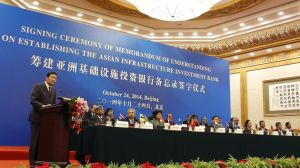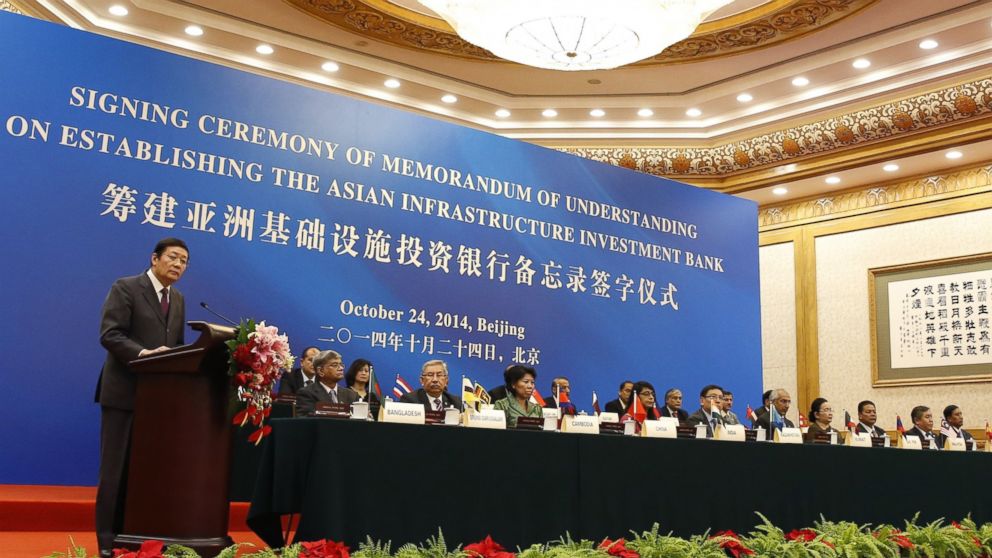
By Jessica Meng
It was once an undebatable fact that the United States was the largest, or one of the largest, economic powers in the entire world, its economy and infrastructure uncontestable. However, recently, other countries have started catching up, some rocketing forward from seemingly out of nowhere; China is one of the most prominent examples. Now, it is seeking to expand its influence through the Asian Infrastructure Investment Bank.
The Asian Infrastructure Investment Bank, or AIIB, backed by China, is a multilateral development bank (MDB) founded to greatly improve the infrastructure and development of Asian countries. China has ambitions of reviving the Silk Road, and wants to fund roads, ports, railway systems, and other such infrastructure that will stretch from China to the Middle East. The ADB (Asian Development Bank, a pre-existing MDB) has estimated that the Asian infrastructure funding gap is $8 trillion dollars between 2010 and 2020; the ADB’s capital base is only a bit over $160 billion, and the World Bank is $223 billion. In addition, these large banks have divided their capital to focus on other problems as well, such as environmental protection and combating gender inequalities; on the other hand, the AIIB is completely devoted to the development of the infrastructure.
China is a country that is trying to make huge strides towards progress, but has been held back by its little say in the world banks. Despite being the biggest economic power in Asia, it only has half the number of votes as Japan in the ADB, and the past presidents of the ADB have entirely been Japanese. It also has little say in the International Monetary Fund (3.81% of the votes) compared to countries like Germany (5.81%), Japan (6.23%), and the United States (16.75%), even though it has the world’s second largest economy. Reforms to increase China’s say in the fund have constantly been postponed. Many believe that China’s creation of an entirely new bank reflects its frustration due to its lack of representation.
According to the company website, “Its modus operandi will be lean, clean and green: lean, with a small efficient management team and highly skilled staff; clean, an ethical organization with zero tolerance for corruption; and green, an institution built on respect for the environment. The AIIB will put in place strong policies on governance, accountability, financial, procurement and environmental and social frameworks.” It welcomes all countries to join the bank and help out, no matter how wealthy or poor; “The Bank’s openness and inclusiveness reflect its multilateral nature.”
Despite these clearly well-meaning intentions, the United States is starting to get a little nervous. Will this development lead to China outstripping the United States, and become the new leading global economic power? The Obama administration has already shown its unease at this by attempting to persuade its allies to not join; this failed attempt is a sign to many that the U.S.’s power is starting to slip. The AIIB had given a deadline for countries to sign up by March 31, and they had expected support from their neighboring Asian countries and perhaps a few more, but an overwhelming number of 46 countries rushed to sign up to be founding members, and by April 16, the number increased to 57, including 14 of the Top 20 economic powers of today. Even Great Britain, the U.S.’s most loyal ally, has joined the bank.
So, will this bank be successful and live up to its standards and expectations? At its current rate of progress and its popularity, most likely it will; and there is also little doubt that the bank will increase China’s influence on the world. Who knows, maybe in the future we will live in a world where 90% of the products are made in Chi- oh wait.

